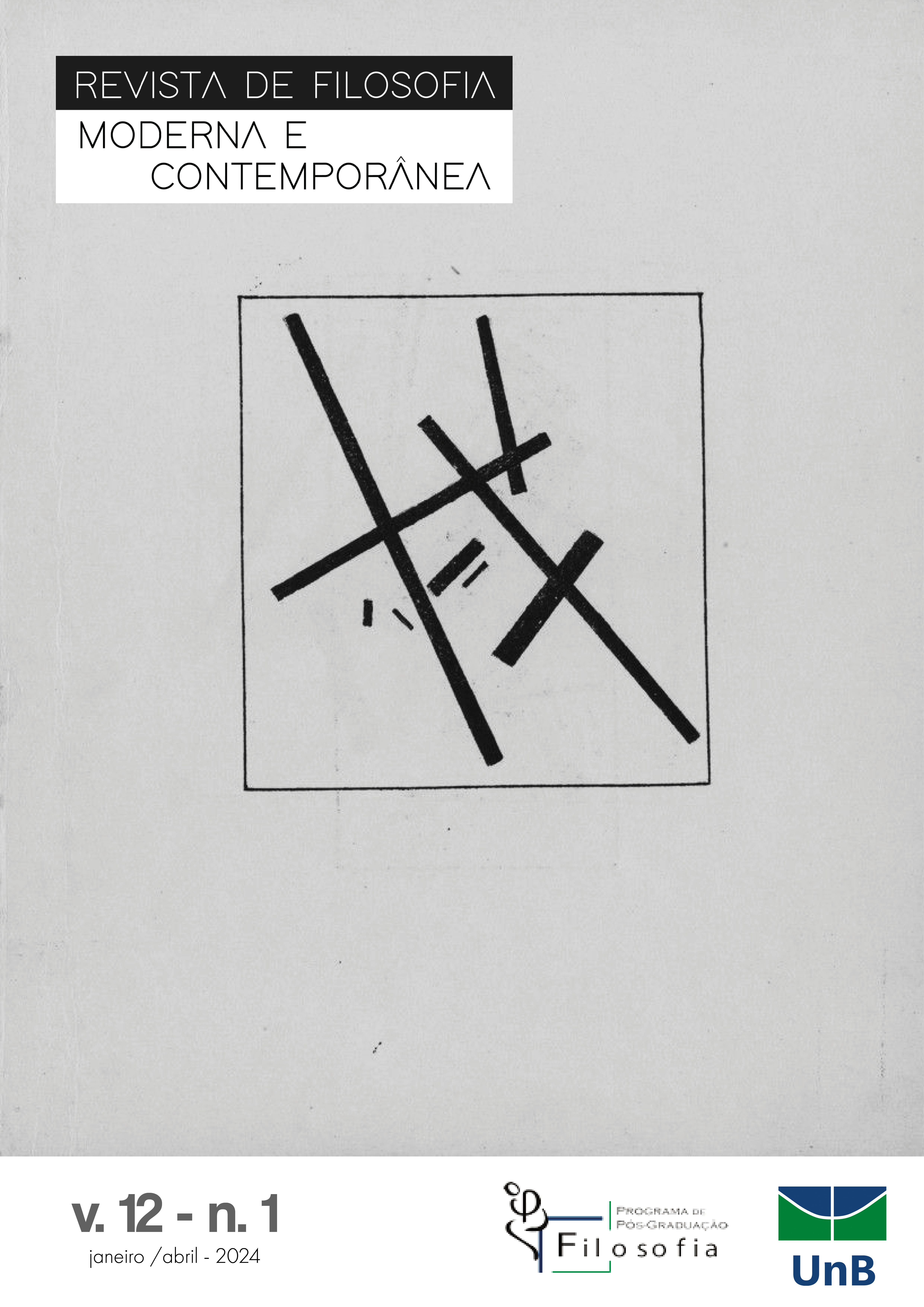Allegorical Topoi - Amorphous Places
DOI:
https://doi.org/10.26512/rfmc.v12i1.53048Keywords:
Alegory. Landscape. Walter Benjamin.Abstract
This proposal examines the intersection between place, non-place, and allegory as structuring categories in the symbolic and historical constitution of contemporary urban spaces. Drawing on Benjaminian reflections, the commodity emerges as the preeminent allegory of modernity, devoid of ontological substance yet endowed with a semantic plasticity capable of reconfiguring the relations between space, time, and society. In this context, the city emerges as a dialectical stage where the sacred and the profane intertwine in a dynamic that dissolves historical memory and reveals tensions between territorialization and abstraction. Conceived as an allegorical palimpsest, the city houses ruins and fragments of obliterated histories that resist the homogenization [im]posed by capitalist logic. From this perspective, fissures persist, allowing for the reinscription of the symbolic and positioning the city as a contested space between the forces of forgetting and the potential for a critical reappropriation of memory.
References
AGAMBEN, Giorgio. Profanações. Tradução Selvino José Assmann. 1ª ed. São Paulo: Boitempo, 2007.
AUGÉ, Marc. Não lugares: introdução a uma antropologia da supermodernidade. Tradução Maria Lúcia Pereira. 9ª ed. Campinas: Papirus, 2012.
BENJAMIN, W. Selected Writings – volume 1 (1913-1926). BULLOCK, Marcus; JENNINGS, Michael W. (Eds.). Cambridge, Massachusetts; London, England: Harvard University Press, 2002.
BENJAMIN, W. Illuminations. New York: Schocken Books, 2007.
BENJAMIN, W. Passagens. Belo Horizonte: Editora UFMG, 2009.
BENJAMIN, W. Experiência e Pobreza. In: BENJAMIN, W. Magia e técnica, arte e política: ensaios sobre literatura e história da cultura. Tradução Sérgio Paulo Rouanet. 8ª ed. São Paulo: Brasiliense, 2012 – (Obras Escolhidas v. 1.), pp. 123-8.
BENJAMIN, W. O capitalismo como religião. Tradução Nélio Schneider. São Paulo: Boitempo, 2013.
BENJAMIN, W. Escrito sobre mito e linguagem. Organização, apresentação e notas de Jeanne Marie Gagnebin; tradução de Susana Kampff Lages e Ernani Chaves. São Paulo: Duas Cidades; Editora 34, 2013 (2ª Edição).
BENJAMIN, W. Origem do drama trágico alemão. Edição e tradução João Barrento. 2ª ed. Belo Horizonte: Autêntica Editora, 2016.
LAVELLE, Patrícia. Glossário Walter Benjamin. Cult – Revista Brasileira de Cultura. Disponível em: <https://revistacult.uol.com.br/home/glossario-walter-benjamin/>.
MATOS, Olgária. O iluminismo visionário: Benjamin leitor de Descartes e Kant. São Paulo: Brasiliense, 1993.
RANCIÈRE, J. A partilha do sensível. 2009.
SANTOS, M. Dinheiro e território. GEOgraphia, vol. 01, n. 01, p. 7-13, 1999. DOI: https://doi.org/10.22409/GEOgraphia1999.v1i1.a13360.
Downloads
Published
Issue
Section
License
Copyright (c) 2024 Journal of Modern and Contemporary Philosophy

This work is licensed under a Creative Commons Attribution-NonCommercial-NoDerivatives 4.0 International License.
Copyright for articles published in this journal is retained by the authors, with first publication rights granted to the journal. By virtue of their appearance in this open access journal, articles are free to use, with proper attribution, in educational and other non-commercial settings.


